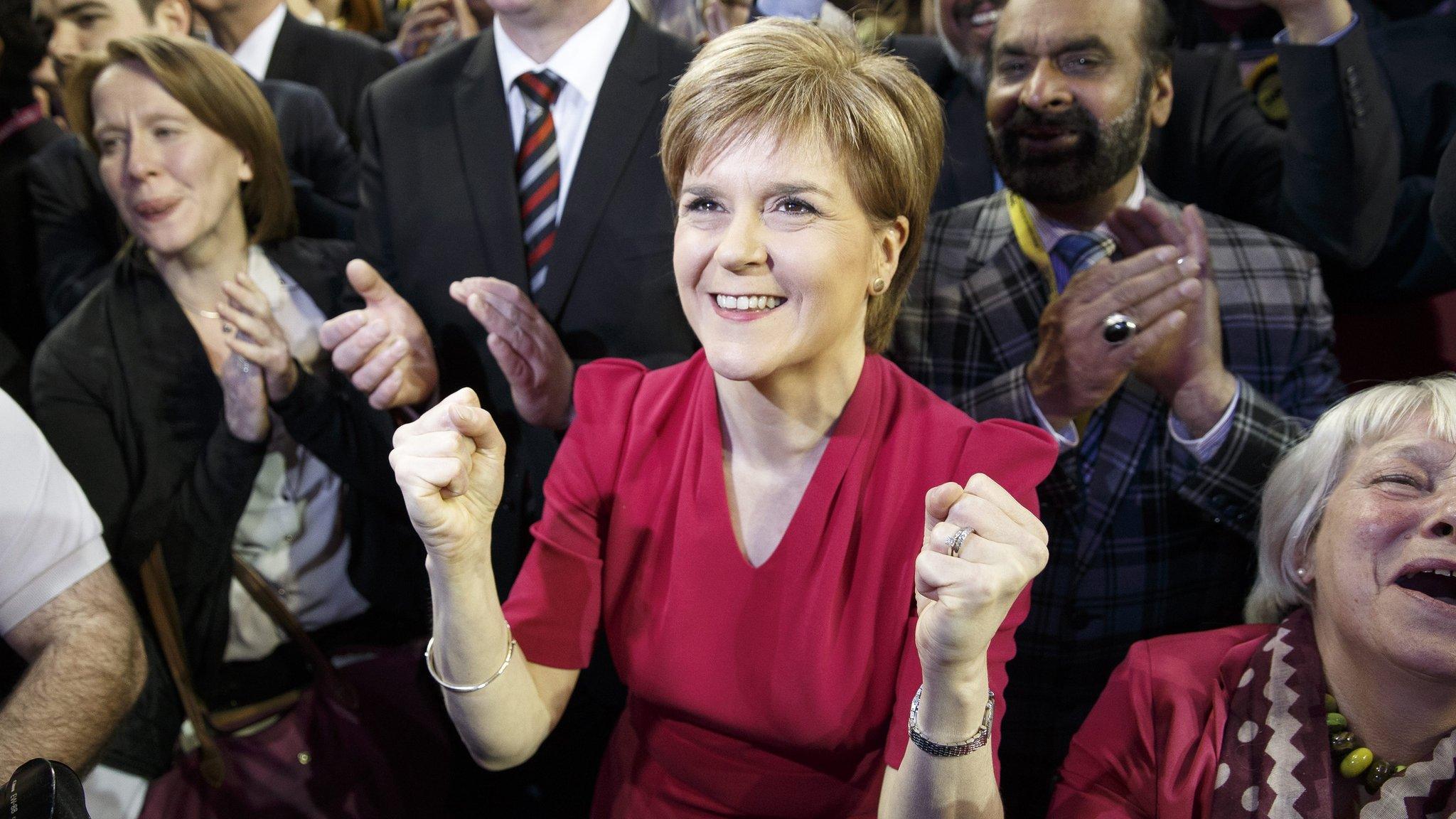Apocalypse now...what next?
- Published

Nicola Sturgeon
Of all the comments on the overnight apocalypse, undoubtedly the most straightforward came from a defeated Scottish Labour MP.
Since there were quite a few of them, let me narrow the focus a little. Come on down, Tom Harris.
Mr Harris had plainly anticipated defeat. Nonetheless, he looked suitably lugubrious as his fate was confirmed.
Why, he was asked eagerly, had Labour lost? "Because we did not win enough votes."
Psephologically, it is perfect. Complete in itself. Psychologically, it sums up Labour's gloom without descending into subsidiary matters such as leadership, strategy and the rest. As a forward-thinking strategy, it is ideal. Win more votes. Simple.
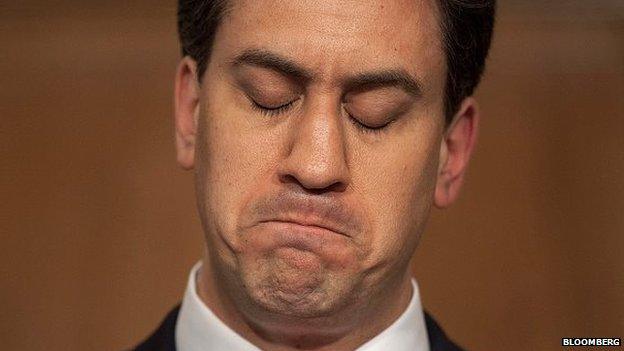
Ed Miliband resigned from his post as leader of the Labour party, in the wake of the election defeat
Perhaps, however, the picky among you may expect a fraction more.
So let us try to explain - while still adhering to the fundamental Harrisite doctrine that elections are won by those who attract and sustain popular support.
But, first, a word or two of congratulations to the remarkable phalanx of SNP folk now returned to Westminster.
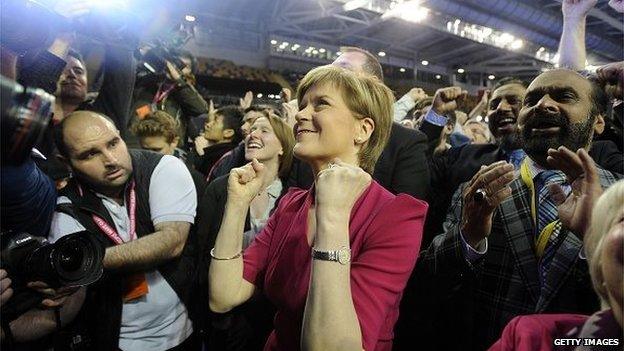
Since the voters are always right, this was just reward for a skilled and disciplined campaign, with a leader who performed magnificently throughout.
It could have gone further
The SNP very nearly took Orkney and Shetland. Let me write that once more. The SNP very nearly took Orkney and Shetland - to add to their other Labour and LibDem strongholds.
The Nationalists nearly ousted the sole Scottish Conservative. And, had their candidate not delivered a few injudicious remarks on social media, the SNP might have been in position to complete the Labour rout by including Edinburgh South in the sweep.
It is an outstanding result for the SNP, easily their best. Attach your own superlatives as the SNP are, rightly, applauded.
Applying the Harris doctrine, they have triumphed. And, universally, their candidates won with dignity, praising their predecessors and other rivals. There was comparable decorum displayed by the ousted MPs.
For the most part, the Harris doctrine says it all. But, as billed, perhaps a little more might be offered for the pedantic.
In no particular order, here are a few reasons for the remarkable results in Scotland.
My interlocutors were all agreed that the roots of the night are deep. One might cite Labour complacency in Scotland. Some inside the party attribute that phenomenon to the Westminster group in particular.
It is possible to attach credence to that viewpoint without going the whole way and endorsing the view, attributed to Wendy Alexander, that the Scottish Labour Party has not contributed an original idea to the body politic in a century or more.
One might also cite the long, slow erosion of Labour tribalism. "Dinnae bather askin' roond here, son. We've aye been Labour". I suspect few canvassers of a Labour persuasion have heard that mantra for some time.
Labour has lost or corroded its links with working-class communities across Scotland. Those links have been supplanted by grassroots organisations. And SNP affiliates. It is no longer a given - has not for some time been a given - that Labour can be trusted to stand up effectively or uniquely for proletarian concerns.
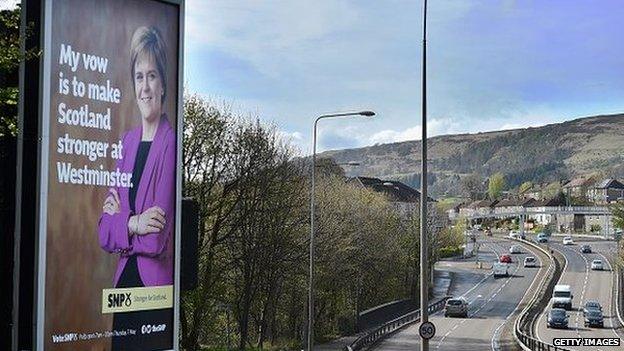
From the other standpoint, the SNP has earned its success. It has been skilled and consensual in Holyrood government. It has demonstrated that it fields serious players and effective ministers. It has, simultaneously, invited voters to infer that the same team could operate equally well in a different constitutional set-up; independence or full fiscal autonomy.
If independence fails to command universal support - which remains evident from the referendum - then equally it seemingly fails to terrify grassroots Scotland.
Folk were not voting yesterday for independence. Nicola Sturgeon made that much clear. It is not a proxy for another referendum.
But, equally, the SNP standpoint is scarcely a secret. Seems that folk were not sufficiently deterred from voting for the Nationalists by the scares prompted by their rivals.
Superb campaign
Alex Salmond was, and is, a highly skilled politician. He won an election at Holyrood then defied voting rules drawn up by Labour to take an overall majority. He governed and led, mostly, well. Consensually where possible.
His successor, Nicola Sturgeon, has gone further, running a superb campaign. She has been strategically dexterous, intellectually skilled and tactically grounded, pitching her arguments to exactly the right blend of potential support in Scotland.
She has swept her opponents aside.
Christine Jardine of the Liberal Democrats struggled to contest Alex Salmond. To be frank, given the circumstances and the opponent, William Ewart Gladstone might have found it tough. Lloyd George might have succumbed.
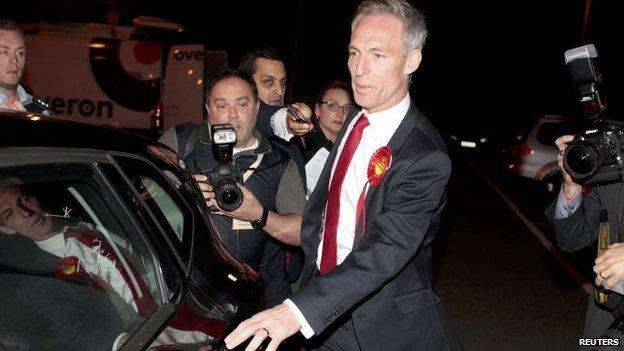
Jim Murphy lost his seat but vowed to continue as leader of the Scottish Labour party
Jim Murphy is neither Gladstone nor George. However, delving into their own history, one Labour interlocutor suggested to me that Keir Hardie or Rosa Luxembourg might have failed to energise the party's campaign, given the extent of opposition and the evident problems.
Few will blame Mr Murphy absolutely. Fewer still, perhaps, will exculpate him entirely. Given the extent of the crisis facing Labour, the fate of one individual is - relatively - insignificant.
One Labour activist argued to me that the SNP had effectively got away with "identify theft". A new version of the "pickpocket" theme, perhaps. Labour needed to stand for Scotland and to offer progressive politics. The SNP had pinched both standpoints, displacing Labour.
Scottish Labour leader Jim Murphy: "The fightback starts tomorrow"
Another, however, said that the campaign orchestrated by Mr Murphy had amounted to a "gimmick-driven disaster". There had been no coherent strategy.
Were they the inheritors of Jimmy Maxton or Tony Blair? Were they seeking to corral the "No" voters in the referendum, drawing them into a Labour ambit (much as Ruth Davidson tried to do for the Tories.) Or were they appealing, with understanding and sympathy, to "Yes" voters who had deserted their side?
Labour's Scottish Executive will meet next weekend to consider matters. (Where? In their branch office? Oh, behave.)
Scottish Labour: Two scenarios present themselves
Mr Murphy will be blamed and will be invited to stand down, perhaps challenged from the Left. Alternatively, Mr Murphy will be partly blamed and invited to remedy matters. He currently favours the latter.
There is, of course, another factor affecting Scottish Labour. The performance of the UK campaign. Yes, there will have been a degree of overspill from the Scottish debate. The Tories hammered home their "SNP pact" narrative. It is likely that deterred some in England, drawing them to David Cameron.
But, again, folk I talked to suggest that Ed Miliband and Ed Balls struggled in other ways. One suggested that they were hamstrung by having to defend the economic record of Gordon Brown's final years in office: by being unable to concede that there might have been some intrinsic problems with spending and constraint.
Ed Miliband: ''It is time for someone else to take forward the leadership of this party''
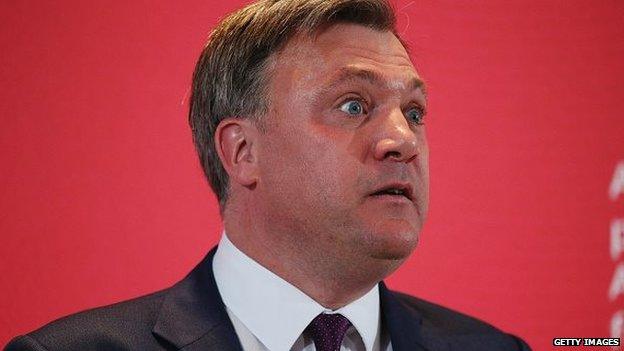
Another suggested that Ed Miliband simply lacked fundamental credibility with the electorate. Certainly, it was notable that, while the polls were neck and neck on voting intention, Labour regularly lagged on leadership competence and economic credibility. Rather elemental factors, one might reasonably think.
In essence, the argument offered to me by sceptical Labour insiders is that you cannot blame Nicola Sturgeon for Ed Balls losing Morley. Mr Miliband, in any event, has resigned with dignity.
Which brings us back to Scotland and the biggest factor of all
For some time, for years, but especially in the aftermath of the referendum, people in Scotland have been looking for Scottish champions.
They have sought politicians who would evince the Scottish standpoint, who would strengthen the Scottish voice in the UK and global discourse. They have sought politicians who owed their allegiance, primarily if not solely, to Scottish concerns.
That search all but obliterated the Scottish Conservatives as they were seen to be out of touch with Scottish opinion. Seen as "other than Scottish". Note, not anti-Scottish, but "other than". Remote.
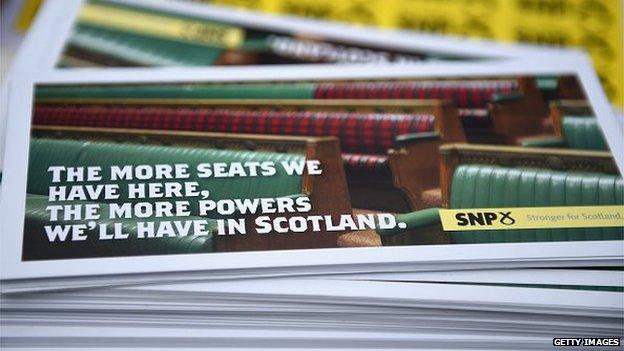
That very same search has now overwhelmed Scottish Labour. (And also the Liberal Democrats who assisted their own demise - they would say honourably - by coalescing with the Tories.)
Scottish patriotism
In the aftermath of the referendum, folk in Scotland have been in a mindset which was focused upon the need for a clear Scottish voice.
That demand is inchoate and imprecise - in that it is not pegged directly or solely to a demand for particular devolved powers or a particular economic strategy.
It is, nevertheless, powerful and all-consuming. Perhaps all the more potent in that it is wide-ranging, rather than narrowly driven.
It is an aggregate feeling of remoteness from the concerns of a metropolitan elite, a feeling of physical and cultural distance from the Westminster centre of UK political life. A shout of anger, a yell of anguish, a demand to be heard.
And that feeling found expression through the SNP. Nicola Sturgeon is right. It tells us nothing about independence - other than the fact that the people of Scotland were not seemingly scared to endorse a party whose reason for being is to end the Union.
It tells us that the people of Scotland, in large numbers but particularly in former Labour, working class areas, want attention paid to their distinctive concerns: economic and social.
There will be more to mention over the coming days. How will Westminster respond? How will the prime minister respond? How will the new SNP phalanx respond? For now, though, enough.
- Published8 May 2015
- Published8 May 2015
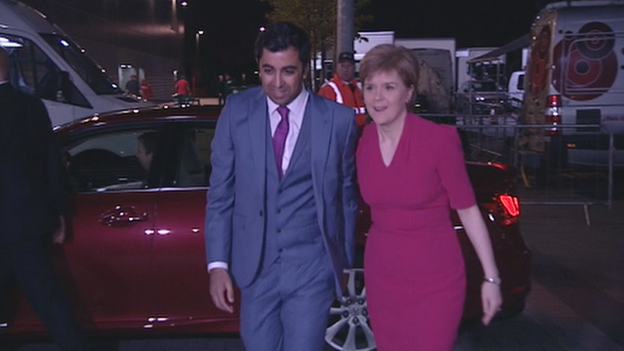
- Published7 May 2015
